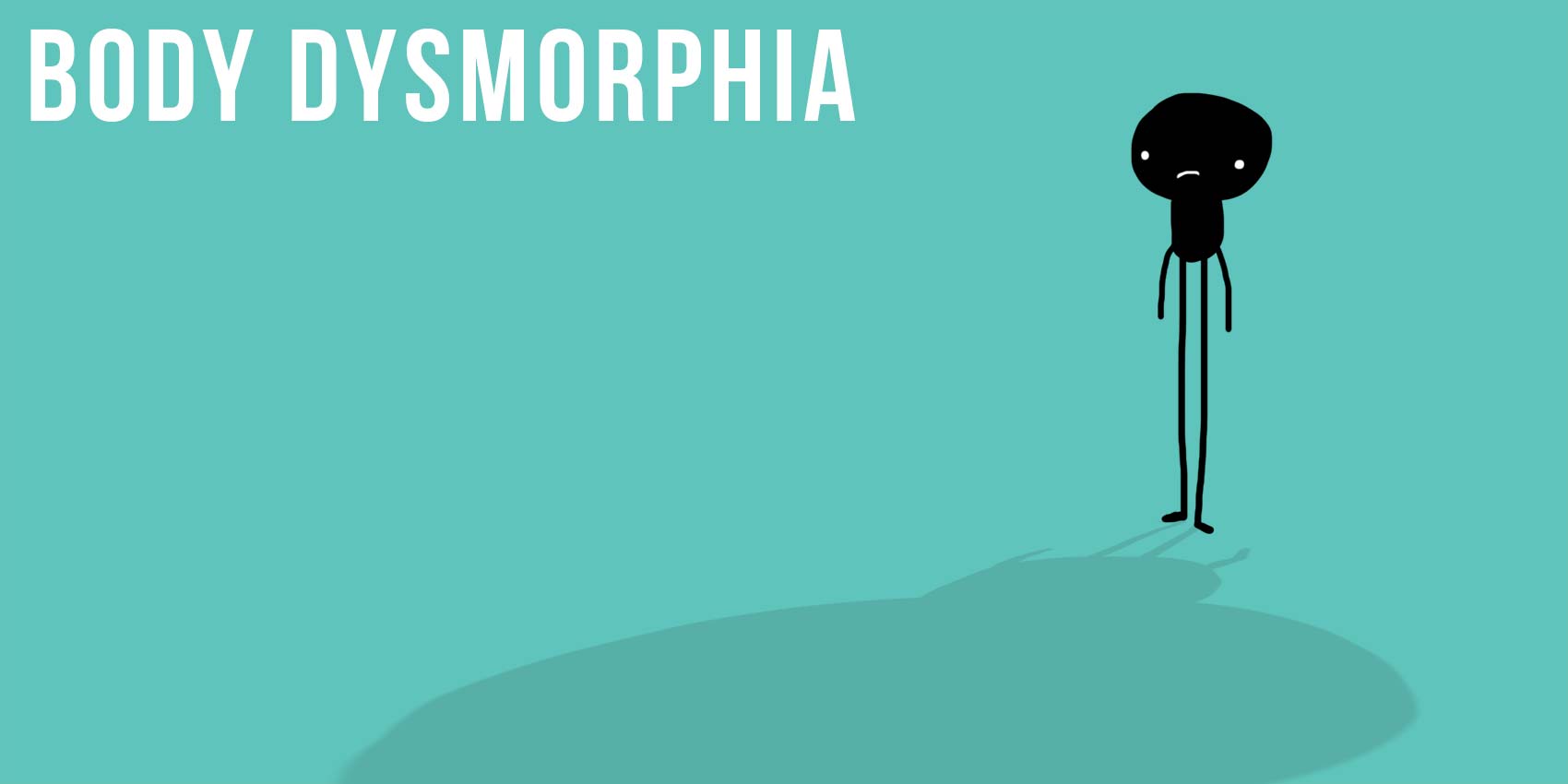22 Sep Body dysmorphia

Body dysmorphia is when someone sees his/her body differently than how it actually is.
For example, people suffering from an eating disorder with body dysmorphia will often see themselves as “fat” even though they are grossly underweight. In its extreme form, body dysmorphia is frightening. You can put two emaciated (meaning, thin to the point of risking death) people next to each other and they can be the exact same weight and size, yet “girl 1” will tell you she is fat and say that “girl 2” is too thin, and then “girl 2” will insist that “girl 1” is too thin, and she (“girl 2”) is too fat.
“Paula’s skinny and I’m fat” says Chris.
“Chris is skinny and I’m fat,” says Paula.
Neither are fat. Both are normal weight.
(They never really had this conversation, it’s just an example of what people with body dysmorphia might say.)
Body dysmorphia is like being in a fun house of mirrors and you are always standing in front of the distorted, fattening mirror. It is very difficult to overcome. It’s different from just not liking your body and wanting it to change. With body dysmorphia, you actually no longer have the ability to see yourself clearly and accurately.
Body image issue: You think your thighs are too fat: you want them to look like toothpicks, they are pencils, but you want toothpicks.
Body dysmorphia issue: You think your thighs are too fat: you want them to look like toothpicks. They are toothpicks.
A negative body image is unfortunately one of the major battles of the teen years. In fact, 80% of girls age 10 worry about being too fat and the number of boys reporting problems is on the rise.
(Source: https://www.girlscouts.org/en/raising-girls/happy-and-healthy/happy/body-image-daughter-says-she-is-fat.html)
So how to change that? It all starts with knowing who you are and what you value, for your friends and for yourself. If you think you or someone you know may struggle with body dysmorphia, speak to a trusted adult. If you feel poorly about your body image, talk to friends and find out how they feel about their bodies. Chances are you will find friends who are struggling with the same feelings. And, of course, read the next sub-post…

DID YOU KNOW? Researchers found that the more selfies young girls posted and the more time they spent editing those selfies, the more likely they were to have a negative body image.




Post Question:
Do you know anyone with body dysmorphia? Could it be you?
Answer the post question here
What's being said